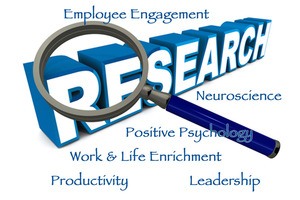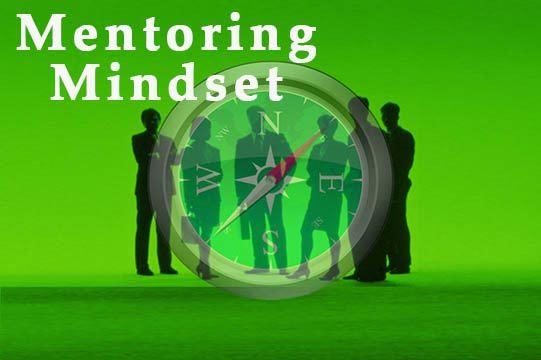One of the most valuable core abilities a leader can develop is to lead with what I like to call a Mentoring Mindset. A Mentoring Mindset refers to a way of seeing every situation as a learning opportunity; of always being in touch with what your people are doing, so you can casually or intentionally provide guidance, wisdom, skills, recommendations, and resources to grow the professional maturity and ability of all your people.
Leaders who use a Mentoring Mindset are able to work with their people to ensure:
- Project successes can be replicated by helping people identify the contributing behaviors and actions that led to the success;
- Project failures can be transformed into learning laboratories, to avoid the same pitfalls on future projects;
- Fears can be overcome through understanding, skill building, practice, and feedback;
- Employees can embrace empowerment by learning how to think strategically, apply policies, make wise decisions, and use resources effectively.
Leaders employing a Mentoring Mindset do not wait until performance appraisal time to correct someone who is off-course; instead, coaching and mentoring become a day-to-day routine part of the job. As an Extraordinary Leader, you are always on the lookout for ways to share insights, offer guidance in decision making and problem solving, model behaviors you want to see manifested, and encourage employees to stretch themselves. The benefits will flow back in a multitude of ways: enhanced engagement, increased initiative and creativity, improved relationships among team members, more powerful bottom-line results—just to name a few!
What Does Research Say?

There are a number of scientific findings that reinforce the value of a Mentoring Mindset. Neuro-biologically speaking, a Mentoring Mindset falls into the realm of helpfulness and generosity, nestled within the same frontal regions of the brain that are activated by awe, wonder, transcendence, and joy. An internal coherence results, which fortifies your immune system, strengthens the neural pathways in the frontal lobe, and arrests the feelings of fear and uncertainty, which are the products of the amygdala.
In another study, organizational psychologist Adam Grant identified three types of attitudes encountered in the workplace: Givers; Takers; and Matchers. Givers epitomize helpfulness and generosity, expressing the Mentoring Mindset of giving by such acts as being open with information, making time to assist others in their projects, and giving credit to others for ideas and work. Takers, on the other hand, are basically looking out for themselves, asking for help but rarely offering it. Matchers live in a reciprocal mindset of trading favors, recognition, and assistance in a “you scratch my back and I’ll scratch yours” mindset. According to this research, Givers experienced more meaning in their work, were more resilient, and handled stressful events more effectively than Takers or Matchers.
Research at the University of California in San Diego and Harvard University (posted in an online edition of the Proceedings of the National Academy of Sciences) provides laboratory evidence that helpful behavior spreads between people. Those who benefit from a generous act tend to find it contagious—and “pay it forward” by helping others. James Fowler, an associate professor of political science at UC San Diego, and Nicholas Christakis, a Harvard sociology professor, showed that when one person gave money in a “public-goods game” to help others, the recipients were more likely to give money away in the future.
The domino effect continued as more people were swept up in the tide of kindness and cooperation, according to the researchers. In short, Fowler said: “You don’t go back to being your ‘old selfish self.’” This domino effect occurs in the workplace as well. When you lead with a visible desire to offer guidance, and turn mistakes into learning opportunities, you will see your people demonstrating the same behaviors as they work with others. By strengthening your Mentoring Mindset, you are in a position to create a workplace more conducive to engagement, better able to serve customers heroically, and ignite creativity and teamwork at the highest possible levels.
Strengthening Your Core Ability of a Mentoring Mindset
In addition to understanding and using the information about how people learn, here are a few other ideas of ways you can strengthen your Core Ability of a Mentoring Mindset. I promise if you put these into practice, you will experience an incredible boost in the productivity and engagement of your people, and you will wonder why you hadn’t done it sooner!
- Get really good at listening. This is the key to successful leadership, in my opinion. Take classes, practice, ask for feedback on how you’re doing, and never stop. You can always get better at listening!
- Get to know each of your employees. This goes beyond just knowing their name and job responsibilities. Dig deeper. Spend quality time with each one, to better understand their interests, their dreams, their fears, and what they need from you to do better.
- Practice the art of teaching empowering behavior. Employees reach their level of confidence in being empowered at a different rates. Your job is to lead them there, by gradually allowing them to take on more authority and responsibility. Initially you are more involved in their decision-making, so you can teach and guide them, ensuring they understand the how and why of what they are handling. As both of you grow in confidence, you can give them more and more empowerment. By the way, while this takes time initially, it eventually frees you up to do more Extraordinary Leadership kinds of things!
- Learn how to provide effective feedback. This is a tough one, because no one enjoys hearing anything critical about what they are doing. But as an Extraordinary Leader, you need to be able to provide both positive and constructive feedback in a way your employees are able to hear it. This takes practice! The five critical steps to ensure effective constructive feedback are outlined on the chart below.

- Make positive feedback as specific and descriptive as possible. The more specific and descriptive, the more impact it has on the person receiving it. For example, instead of just saying, “Great job!” identify exactly what you are acknowledging: “Linda, I was so impressed with the way you handled that angry customer. You kept your cool, let him vent, and then worked with him to create a solution he appreciated. I love how he actually apologized to you! Awesome job! Thank you for representing us so well!”
- Never stop developing yourself. The more you strengthen your skills in leading with a Mentoring Mindset, the more ways you see to do it. Observe others who are good at it, ask your people what they need from you, get a mentor yourself, and become a perpetual learner.
(Excerpt from Extraordinary Leadership: Connecting With Your Seven Core Abilities to Bring Out the Extraordinary in Others, by Cher Holton)
